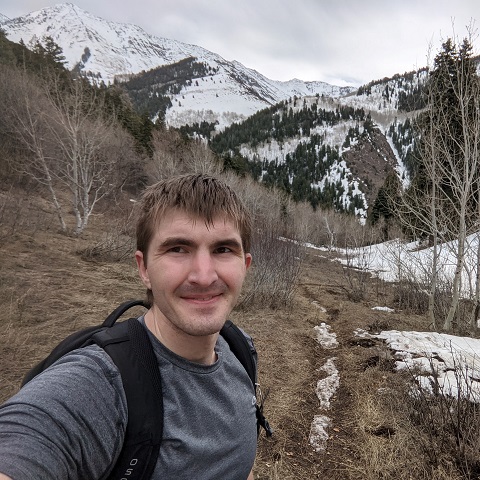Zachary Yauney

- Home Institution: Brigham Young University
- Program: REU at CLASSE
- Semester: Summer 2021
- Expected Graduation Year: 2022
- Mentor(s): Chad Pennington & William Li
Q&A
What is the research you are engaged in and what have you accomplished this summer?
I'm working on developing a computer model of the magnetic fields of a spectrometer that is being added to the MEDUSA beamline. I'm also modeling the behavior of the particle beam as it moves through the spectrometer. I've learned a lot about accelerator physics and all the work and considerations that go into making them function at a high level. I've improved my programming skills while developing the computer simulations.
What are the impacts of your research for the general public?
The impact of my research will be felt through the research that it enables. My research will provide an enhancement to an important tool in materials science research - Electron Energy Loss Spectroscopy. My work will help materials scientists probe the structure of and behavior of different materials at a very small scale. One particular materials science sub-field that will benefit from this research is superconductors.
What did you enjoy most about this research/summer experience?
The thing I enjoyed most about my research was learning the details of particle accelerators. I was always aware of their existence but now I know a lot about how they work and why they are useful. I appreciate them way more now, and I've thought about ways they might be useful in my future research.
What did you find the most challenging about this research?
The most challenging aspect of this research was getting all of the software to work. There are a lot of moving pieces and so setting it up and figuring out how to manipulate it correctly were difficult. However, once I had a feel for the software it was really cool to be able to do different calculations to optimize the beamline. The software is really powerful and useful once you understand it.
How has this experience changed your view about being a researcher?
I have a better view of what the research process entails. There is a lot of work that goes into getting the details right, it's not all big ideas and exciting cutting edge experiments. If it weren't for the large body of scientists methodically building the infrastructure necessary to do modern science, nothing would ever get done. This experience has deepened my appreciation of the art of crafting great tools for doing great science.
